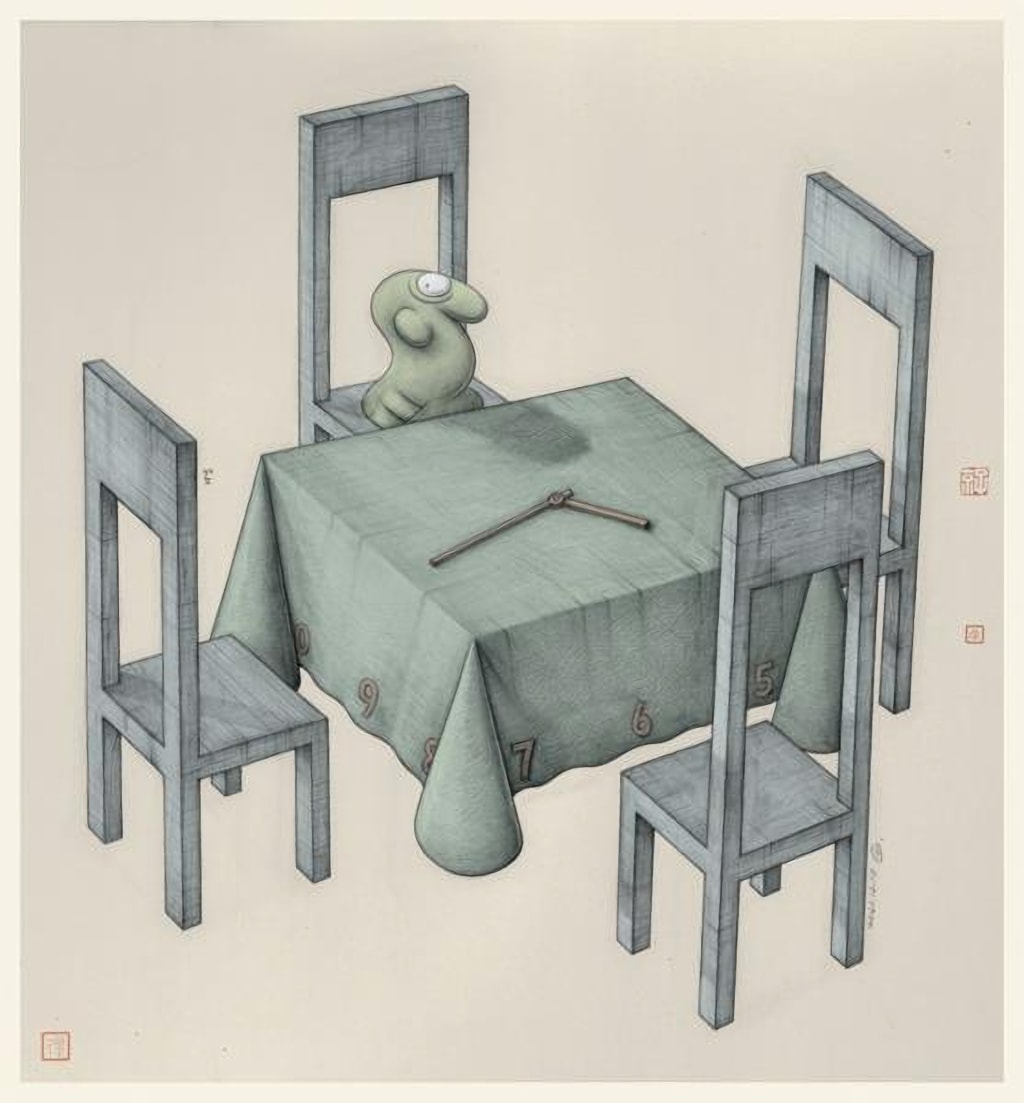Don't be "wonderful" spoil yourself
If people grow up in the context of entertainment culture, they will have a very short time to endure without laughter, excitement and vivid speech. Their reading ability will also decline. The short and fast things on mobile phones destroy the cultivation of deep reading ability.

In an article, the scholar Liu Qing talks about the ability to "endure boredom", which is particularly reasonable. When people grow up in a culture of entertainment, he says, the time they endure no punchlines, no excitement, no vivid ways of talking is very short. Their reading skills also decline, and the short, quick things on the phone undermine the development of deep reading skills. Our college model is set in a mid-20th century culture, where if you can apply yourself to a book and put up with seemingly boring but deep content, it will be very rewarding. But now the whole cultural environment has changed, and people's tolerance for "boring" is generally very low.
Indeed, a generation that lives in consumerism and entertainment has been spoilt for excellence. People love the sensory stimulation brought by jokes, jokes, golden sentences, punchlines and baggage, and are used to being fed by the entertainment culture that consumes their own time. Their learning senses have been blunted, and they cannot enter the realm of deep learning beyond the threshold of boredom. Learning increasingly relies on what the sociologist Bergman calls "device paradigms" that take the "drudgery" out of your mind in a friendly and human way, transforming laborious words into easy audiovisual language and implanting laughs. Having a computer in front of you that you can switch between at any time, these learning devices that liberate you from boredom, have actually changed the nature of learning and made it a landscape of information consumption. This "learning landscape" produces the desire to make people restless and anxious, rather than taming the desire with heavy intellectual thought and calming people down.
The things that can truly nourish a person often carry a certain dullness that requires the learner to endure and devote deep attention to penetrate the abstraction. The beginning of writing is boring. Reading a classic is boring. Deep class, is boring. The process of innovation and creation is often boring. Boring is a threshold, it is the obstacle that the person that does not learn without skill, impetuous person, recreational person sets. Cross this threshold, immerse in, in order to slowly get pleasure. Wonderful is not a "passive" conclusion, not through other people's feeding, suddenly arouse your interest, but in the lonely meditation, to overcome the boring first astringent and smooth, read read, learn new knowledge, eliminate confusion after the knowledge of pleasure.
Writing is a boring business to endure. Often students say to me, the reason why not write, because there is no inspiration, such as when the inspiration to write. I mean, how can you wait for inspiration? You have to think and write now. It must be boring at first, but my experience is that if you get past the first 30 minutes of boredom, push yourself to write, think about it, you will get into the zone and find inspiration. A sense of coherence is rarely something that comes at the beginning, but is something that develops in the process of overcoming the boredom of the first 30 minutes.
Reading is a boring thing to endure. You have to have the patience to slow yourself down. The most abstruse and difficult to read book, overcome the first 30 pages of reading pain, slowly read in. The first 30 pages are often the writer's barrier and the bar. A good writer is looking for a good reader, and he doesn't want his work to be ruined by someone who doesn't know anything. The problem for many people is that they are easily attracted by the title of a book, but they don't have the patience to read it for even 30 minutes. Easy reading that makes you feel comfortable and keeps nodding your head is often ineffective reading that repeats your existing cognition. To gain cognitive increment, you need difficult "entry", hard reading that requires brain burning.
Getting a good class is often boring. Often listen to the students say that so-and-so class is a good class, the teacher is good at telling jokes; The so-and-so class is too boring, full of abstract concepts and difficult reasoning. I said that a class should never be judged by the consumer ego of "will it attract me in 10 minutes?" that was an insult to a good class. First of all, I need to know whether I need this course to improve my knowledge system and improve my thinking. Students and teachers are not "I pay you to teach me knowledge" consumption relationship (popular knowledge payment alienated the education relationship), physical and mental investment in the learning process will be fruitful. Secondly, we should have the psychological readiness to endure boredom, investment and participation in it.
The teaching of knowledge itself is boring. Logical reasoning, method training and critical thinking can only be internalized by thinking, analyzing, pondering, questioning and negating by oneself, and actively exploring rather than passively receiving feedings.
Boredom is a threshold, someone can not cross the threshold, fall asleep, or by the variety on the computer and mobile phone jokes attracted away, murder time. Excellent people endure the boredom of the first 30 minutes and immerse themselves in writing, reading and class. Over time, there is a difference between poor students and outstanding students, and between people and talents. The so-called excellent, is not a clever clever, but has a strong boring endurance, is a smart man under the stupid effort, over the boring and climb to the height of knowledge.
What is procrastination? In my class, I shared with my classmates how to fight procrastination: endure 10 minutes of boredom, and you will beat procrastination. Do what suits your desires and never procrastinate. Easy to be delayed things, often have a certain boring at the beginning, immediately start to do, 10 minutes to step past, accepted this thing, into the "psychological field" to do things, enjoy the sense of accomplishment, inspired by the "action positive feedback", can not stop.
The formation of good habits is also the process of overcoming boredom. Learn English while exercising, read a book on the subway instead of watching short videos, read a few pages before bed instead of watching short videos, write a few paragraphs between meetings instead of watching short videos. When you have an idea, jot it down immediately instead of "jotting it down later." Multiple actions, write it down instead of trusting memory or fingertips. The beginning is always a bit boring, accumulate for a month, look back, have a sense of benefit, into the body instinct, become a habit, will let you benefit for life.
In the process of professional training, which is not the process of overcoming boredom? According to historian Sang Bing, long, repetitive, boring, basic exercises are the only way to develop an interest and become an expert. Playing the piano, learning history, reading philosophy, reading literature and writing papers, writing a good character, becoming an expert, every admirable achievement, every recognized professional inside and outside the industry behind, have experienced ordinary people can not stand the boring. What you see is interesting and fun, which is the easy control of others' professional accumulation. Innovation is not a brainwave of new ideas. It is the cumulative result of repeated experiments, brainstorming, literature input, failure, frustration, getting up and getting on with it. Professional learning and training itself involves overcoming the boredom that laypeople can't stand, reading things that ordinary people can never read, and doing repetitive training that ordinary people can't stand, so as to have irreplaceable professional capital, go beyond "human hands", and become "talents" and even "characters".
In many cases, people's pursuit of "fun" implies an unwillingness to engage in the process of enduring boring immersion, and the "sensory pleasure" is the source of superficiality. So I think you should cherish those challenges that test your boring tolerance, be wary of catering and feeding, and build up the capital to handle them gracefully. Nowadays, many so-called "learning" has been separated from the search for true knowledge and become a health massage. The commercial entertainment that creates the illusion of knowledge is not to let you overcome boredom and get new knowledge, but to cater to your inertia of "aversion to boredom" and reproduce the knowledge that needs hard work into "knowledge points", "golden sentences" and "chicken soup for successful learning" that are interesting on the surface but lose their original nutrition. It's actually not nourishment, it's consumption by the entertainment industry.
I often tell students, learning is learning, entertainment is entertainment, want to entertainment, then good fun, play. Learning is learning. Don't fake it. Call it "fun learning." Reading, as far as possible to read serious writing, reading classic, gain new knowledge in the lonely immersion and reads silently, and through the "output" to curing it, and get the story in overcome boring, good knowledge, rather than wait for someone else to take you as baby, feed that add various sweeteners' nutrition knowledge to coax to you and spoil you.
About the Creator
Kiel
Wonderful stories often come from inner feelings.






Comments
There are no comments for this story
Be the first to respond and start the conversation.